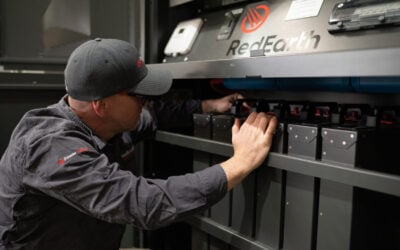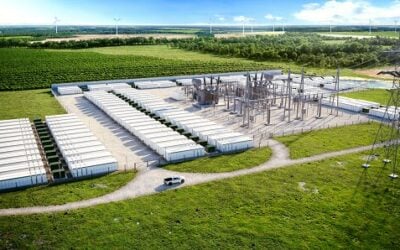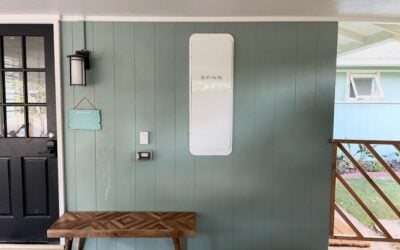BMW was successful in a competitive solicitation process put out by PG&E for a minimum of 100kW of demand response. Image: Flickr user: jeena paradies.
A new scheme to provide grid-balancing services directly from the batteries of electric vehicles (EVs) will be trialled by car maker BMW, in partnership with California utility company Pacific Gas & Electric (PG&E).
The programme will offer payments to EV owners for providing demand management services to the grid, beginning with a pilot involving 100 BMW customers. BMW will also install a storage device made from recycled EV batteries at one of its offices to provide demand response.
Enjoy 12 months of exclusive analysis
- Regular insight and analysis of the industry’s biggest developments
- In-depth interviews with the industry’s leading figures
- Annual digital subscription to the PV Tech Power journal
- Discounts on Solar Media’s portfolio of events, in-person and virtual
Demand response pays electricity users to curtail or lower their energy use during periods of high peak demand. At present the majority of demand response is done in California and elsewhere by requesting large energy users such as industrial facilities to shut down some or all of their power use, increasingly by using automated energy management systems. The benefits of demand response to the grid are manifold. They improve reliability and lower costs, while also reducing overall energy use. On the cost reduction front, effective demand response can circumvent the need for upgrades to infrastructure, as well as reducing the need for fossil fuels to balance out peaks – which obviously also has environmental benefits.
At present demand response programmes are not widely used to smooth out the variable output of renewable energy facilities such as wind and solar, but PG&E hinted at the strong possibility that this will become more widespread as technologies and conditions improve. PG&E put out a competitive solicitation process for parties interested in putting a minimum of 100kW of demand management on the utility’s networks, to which BMW responded successfully.
From the auto manufacturer’s perspective, one of the main aims of the programme is to raise the economic attractiveness of EV purchase for consumers. PG&E will make payments to BMW, which BMW will then apparently use to lower the overall cost of EV ownership, in addition to making upfront and then ongoing payments to the participating EV owners. The level of incentives available to owners will vary based on their agreed level of participation in the scheme, called iChargeForward. Customers will be able to track the levels of these incentives and then choose whether to remain in the programme or opt out.
Basically, iChargeForward participants will be monitored for their energy use by PG&E. When required, BMW will be informed by PG&E via internet of a need to reduce the load – for how long and by how much. EVs will then have their charging halted if necessary to accommodate the requests.
PG&E is hoping that the scheme can be extended far and wide. Image: Flickr user: Kārlis Dambrāns.
The idea is similar, in a way, to the Smart Home concept, where residential stationary storage is combined with EV batteries, often in tandem with solar PV arrays, providing the connected home with energy and then feeding surplus energy into the grid. However the latest scheme from PG&E and BMW is at present restricted to the use of EVs for demand response. A recent academic study by a team in Macedonia, using simulations, found that EV batteries could be suitable for grid balancing. However the study was restricted specifically to batteries used by buses, which run to strict schedules and set journey patterns in fleets.
The programme will last an initial 18 months. PG&E said it would be keen to extend the duration and scope of the scheme if successful. Senior director of customer programmes Aaron Johnson referred to 60,000 EVs already in use in PG&E’s service area.
“Collectively, they [EVs] represent a huge and growing resource that we can potentially tap to provide more flexible, lower cost, and cleaner energy for our customers.”
Big names in solar such as SunPower have talked before about the potential for aggregating the capabilities of a number of connected storage devices, stationary and EV batteries, not only to sell the power on but also to provide ancillary services such as demand response. At present economic, technical and regulatory conditions make this a little way of from coming into being.
Meanwhile, executives at EV and stationary storage specialist Tesla, including technical officer JB Straubel – who once claimed to be more interested in batteries than in cars – and founder and CEO Elon Musk, have said that the potential for cost reduction as a result of scaling up production has been greatly underestimated, not only for EVs, but also for stationary storage. Tesla’s plans for scaling up its own manufacturing centre on the imminent construction and subsequent ramping up of capacity at its Nevada ‘Gigafactory’.
Meanwhile, UK renewable energy industry stalwart Ray Noble, an advisor on specialist topics including solar, EVs and energy storage to the country’s Renewable Energy Association (REA), recently told PV Tech Storage the potential he saw for increased deployment of storage and cost reductions from the secondary use of batteries. ‘Recycling’ EV batteries, Noble said, could really give a boost to both the stationary storage and EV sectors. BMW’s forthcoming California storage facility, at the company’s Group Technology Office in Mountain View, will re-use lithium-ion batteries taken from the car maker’s MINI E demonstration range of EVs. In Japan, Nissan is currently trialling the use of repurposed batteries from its Leaf EV in large-scale battery projects.
Peter Bennett from PV Tech Storage’s sister site Next Energy News rounds up the BMW / PG&E pilot.






